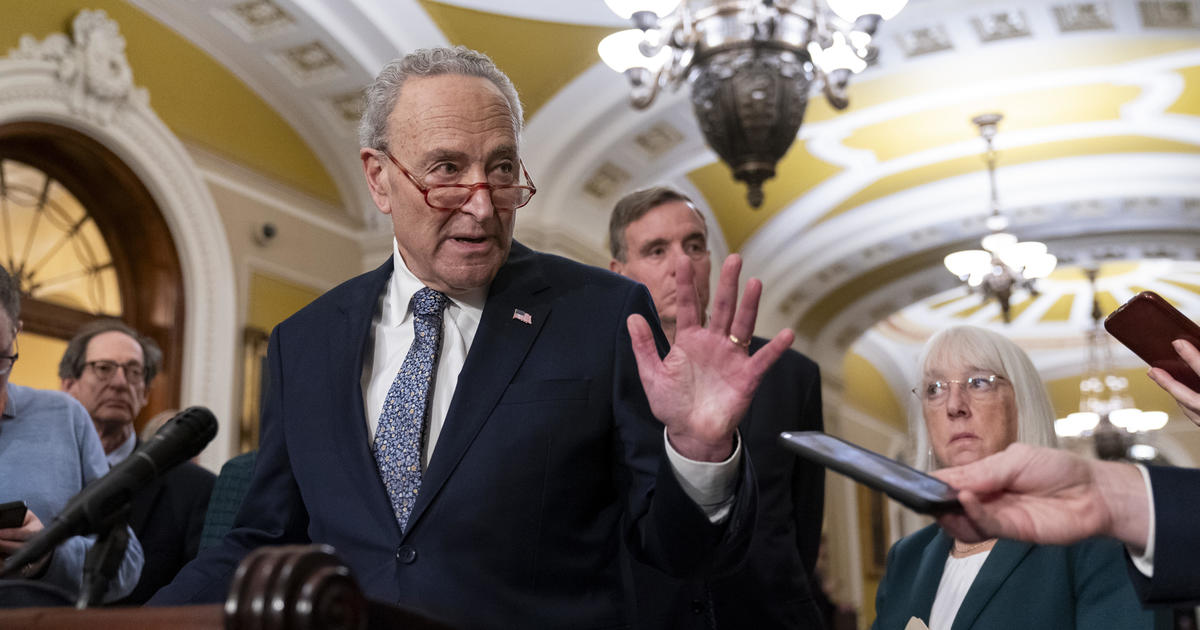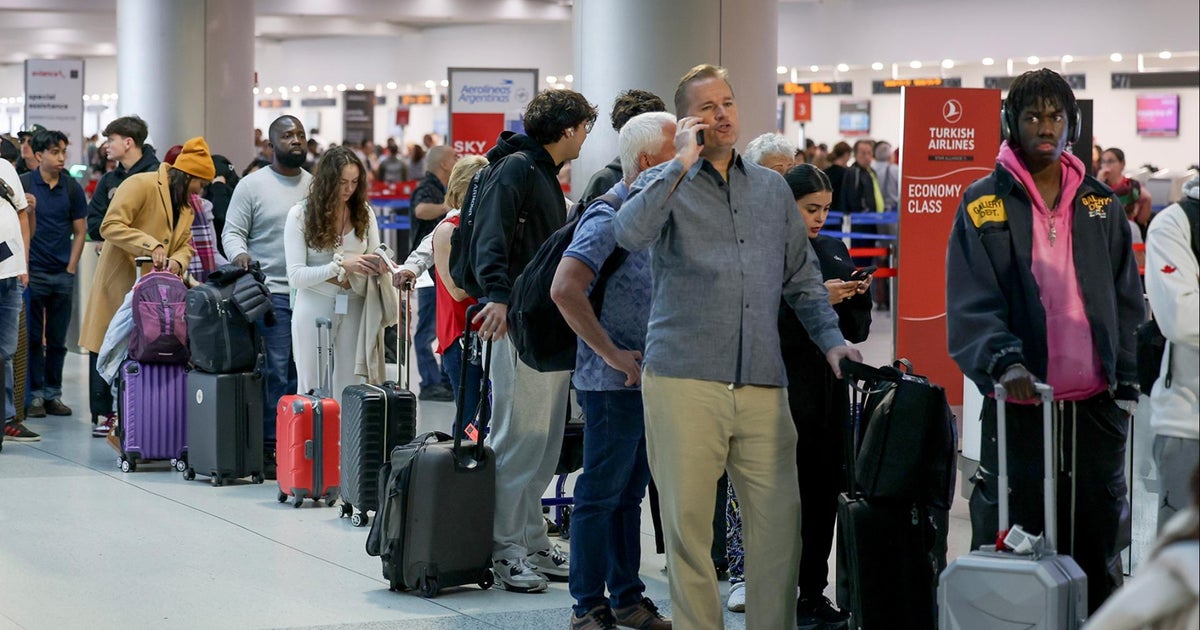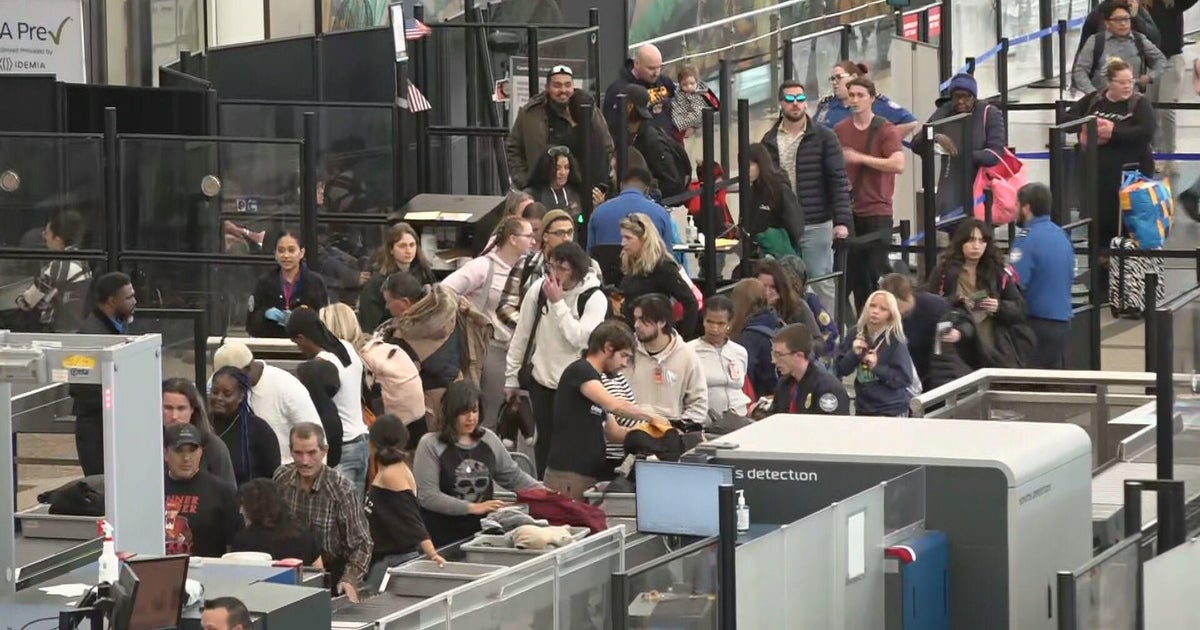CBS News
Democrats pushing forward with Ukraine and Israel aid amid growing dispute over border funding

Washington — Senate Democrats are moving ahead with a vote this week on President Biden’s request for $106 billion in emergency funding, including billions in foreign aid, amid a growing dispute with Republicans over security funding for the U.S.-Mexico border.
Senate Majority Leader Chuck Schumer of New York set up a key procedural vote on the supplemental spending package that includes aid for Ukraine, Israel and Taiwan for Wednesday. The vote is expected to fail, absent a last-minute deal on border funding that has so far eluded lawmakers.
“Sometimes a failed cloture vote is just a failed cloture vote, and tomorrow we are going to fail to pass it,” Sen. Michael Bennet, a Democrat from Colorado, said Tuesday, referring to the legislative maneuver to end debate on a bill. “And then people are going to have to sharpen their pencils and spend the next week negotiating a deal that keeps America’s commitment not just to Ukraine, but to democracies around the world.”
The fight over border funding
Stephanie Scarbrough / AP
Schumer blamed Republicans for Congress’ inability to approve the emergency funding, saying hard-liners are insisting on attaching controversial immigration policy changes to the supplemental bill. A bipartisan group of Senate negotiators have been meeting in recent weeks to try and reach a consensus, but those talks seemed to reach an impasse over the weekend.
“Republicans pulled the goalposts way back and proposed many items plucked directly from H.R. 2,” Schumer said Tuesday, referring to a Republican-backed immigration bill that passed the House earlier this year with no Democratic support.
He said GOP negotiators proposed granting the executive branch the authority to detain asylum-seekers indefinitely and essentially shut down the country’s immigration system, which are nonstarters with Democrats.
“If funding for Ukraine fails, it will not be a bipartisan failure,” Schumer said. “It will be a failure solely caused by the Republican Party and the Republican leadership because it was a decision of that Republican leadership, pushed by the hard right, many of whom want Ukraine to fail, to make border [aid] a precondition to supporting Ukraine.”
Republican Sens. James Lankford of Oklahoma and Thom Tillis of North Carolina have pushed back on the House GOP demand that the border component be the same as its immigration bill. The two, along with Bennet, have been part of the small bipartisan group of senators negotiating a border security package.
“I’ve heard a lot of people say H.R. 2 or nothing,” Lankford said Tuesday. “And I’ve always smiled and said, House Republicans didn’t get a single Democrat on H.R. 2, and they’re asking us to get 20 on our side. OK, well, that’s not realistic. I’m not about making a message at the end of this. We’ve got to actually make law at the end of this.”
Lankford said he was confident lawmakers could reach a deal by the end of the year.
“It’s just a matter of everybody staying at the table to be able to finish everything out,” he said.
The White House warned Congress on Monday that the U.S. will run out of funding to assist Ukraine by the end of the year, which it said would “kneecap” the country in its war against Russia.
In response to the White House, House Speaker Mike Johnson of Louisiana reiterated that Ukraine aid is “dependent upon enactment of transformative change to our nation’s border security laws” and that he wants the administration to provide specifics about where the funding is going and the endgame in Ukraine.
Ukrainian President Volodymyr Zelenskyy planned to address senators by video on Tuesday in a classified briefing but was ultimately unable to attend. Before the change of plans, Schumer noted it would have been the third time Zelenskyy had addressed senators since Russia invaded Ukraine.
“The last time he spoke to us, his message was direct and unsparing,” Schumer said. “Without more aid from Congress, Ukraine does not have the means to defeat Vladimir Putin. Without more aid from Congress, Ukraine may fall. Democracy in Europe will be imperiled, and those who think Vladimir Putin will stop merely at Ukraine willfully ignore the clear and unmistakable warnings of history.”
National security adviser Jake Sullivan and other administration officials briefed House lawmakers on Ukraine on Tuesday.
Alan He and Ellis Kim contributed reporting.
CBS News
Holiday travel rush underway across U.S.

Watch CBS News
Be the first to know
Get browser notifications for breaking news, live events, and exclusive reporting.
CBS News
Oil and gas companies sued over alleged false claims of plastic recyclability

Watch CBS News
Be the first to know
Get browser notifications for breaking news, live events, and exclusive reporting.
CBS News
Record number of Americans expected to travel over holidays

Watch CBS News
Be the first to know
Get browser notifications for breaking news, live events, and exclusive reporting.









